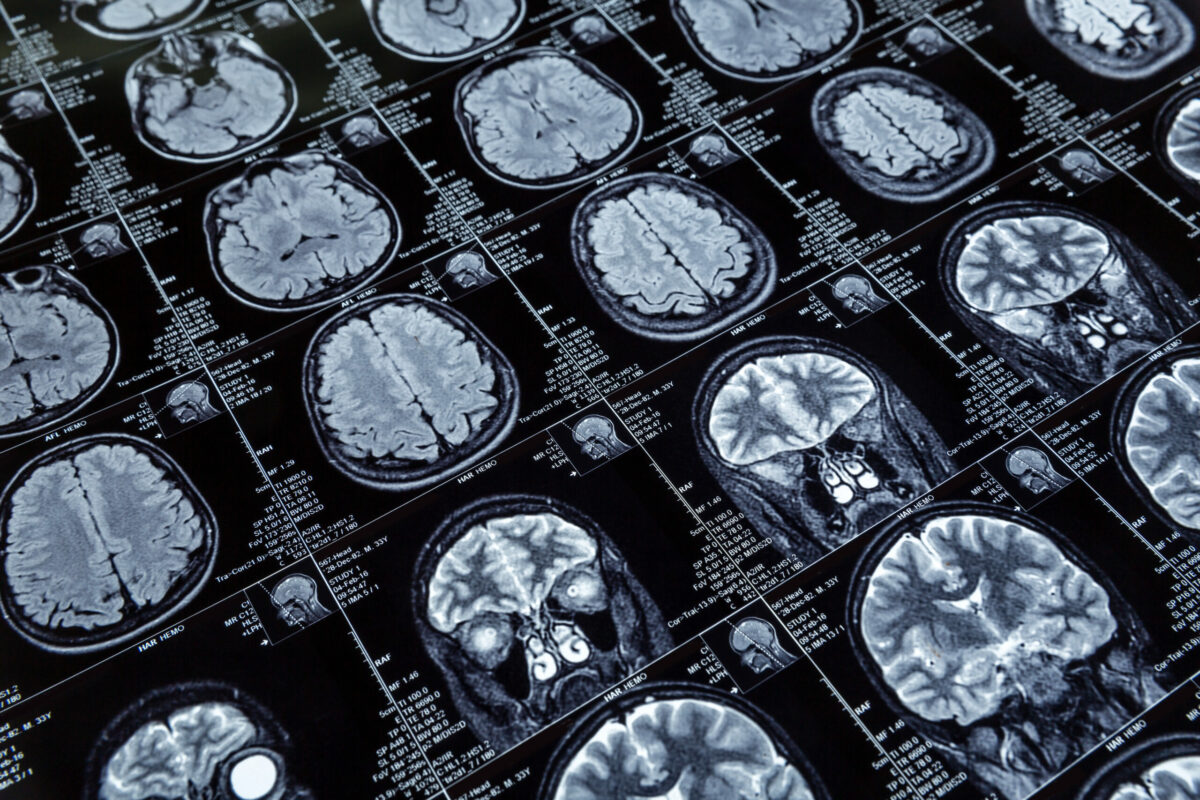A disease in which significant changes in mental abilities occur is called delirium. People with this condition experience confusion and lack of awareness. Commonly, it occurs quickly within hours or several days.
Usually, delirium is caused by a combination of factors including severe or long-term disease or an imbalance in the body (such as reduced sodium level). However, delirium may also happen due to some medications, infections, surgeries, heavy alcohol drinking, and others.
In some cases, the delirium symptoms may be mistaken for dementia symptoms. Thus, physicians frequently rely on input from family members or caregivers to confirm the diagnosis.
Symptoms
Mostly, the symptoms appear quite fast within several hours or days. However, some people may notice that the symptoms come and go or disappear for a period. Moreover, delirium symptoms may worsen during nighttime or in locations that are not familiar (such as a hospital). Check below the primary delirium symptoms:
Decreased Awareness of Surroundings
- Difficulty focusing on a topic
- Get stuck on an idea
- Easily distracted
- Reduced or lack of response to surroundings
Poor Thinking Skills
- Memory problems
- Not knowing the location or with the person who you are
- Speaking problems (such as nonsense speech)
- Difficulty understanding speech and trouble writing or reading
Emotional and Behavioral Changes
- Depression
- Short-term anger
- Anxiety
- Lack of interest and emotion
- Sudden mood changes
- Personality changes
- Restlessness
- Reduce movement or being sluggish
- Sleep habit changes
Delirium Types
Healthcare providers classified this condition into three types. For example:
- Hypoactive delirium – Those who experience this delirium type usually are less active and tend to be drowsy and sluggish. Moreover, they usually do not interact with family members or other people.
- Hyperactive delirium – This condition is considered one of the easier types to recognize. Commonly, people with hyperactive delirium are restless and anxious and may have sudden mood swings.
- Mixed delirium – This type involves symptoms of both previous delirium types. People with this delirium type may quickly switch from being restless to sluggish.
What is the Difference between Delirium and Dementia?
Usually, it is quite difficult to determine which condition have a person. Moreover, in some cases, people may have both conditions.
In people with dementia, a gradual memory decline occurs due to damage to the brain cells. One of the most common causes of dementia is Alzheimer’s disease.
However, people with dementia frequently experience delirium but delirium episodes not every time mean a person has dementia. Furthermore, tests for dementia should not be performed during delirium episodes because the outcomes may be misleading. Check below some differences between these conditions:
- Onset – While delirium happens quite fast within hours or a few days, dementia causes mild symptoms in the beginning and worsens over time.
- Attention – Difficulty focusing frequently occurs in people with delirium but in a person with an early stage of dementia agitation and sluggishness are not present usually.
- Fast symptoms change – Symptoms in people with delirium usually come and go multiple times during the day. However, memory and thinking skills remain at a constant level in people with dementia.
It is recommended to consult a doctor immediately if you or a loved one experience delirium symptoms.
Causes
Commonly, this health problem happens when the signals in the brain are not sent and received correctly. Delirium may have either one or multiple causes. For instance, a disease along with an adverse reaction to a medication. In addition, in some cases, it is not possible to determine the exact cause of delirium. Check below some potential causes of this condition:
- Some medications including their adverse reactions
- Substance or alcohol misuse or withdrawal
- Certain health conditions (including myocardial infarction, stroke, worsening lung, liver disease, head injuries, and others)
- Mineral imbalance (such as decreased levels of calcium and sodium)
- Severe and long-lasting health conditions
- Fever
- New infections
- Urinary tract infections
- Pneumonia
- The flu
- COVID-19
- Exposure to toxins (such as carbon monoxide, cyanide, or other poisons)
- Malnutrition
- Dehydration
- Sleeping disturbances (insomnia)
- Severe emotional distress
- Chronic pain
- General anesthesia
Furthermore, medicines used to treat the following health problems also may trigger delirium. For example:
- Pain
- Allergies
- Swelling
- Mood disorders
- Insomnia
- Asthma
- Spasms
- Convulsions
- Parkinson’s disease
Risk Factors
Roughly any health condition that makes you stay in a hospital increases the risk of delirium. It happens when people recover from surgery or are put in intensive care. In most cases, this condition negatively affects older people who live in nursing homes. Check below some health problems that may elevate your risk of delirium:
- Brain conditions (including stroke, Parkinson’s disease, dementia, and others)
- Past delirium episodes
- Vision changes (such as blindness)
- Multiple diseases
Complications
While some people experience delirium for a few hours, others may have it for months. However, when the delirium causes are addressed, the recovery often lasts a short time. Furthermore, the recovery time depends on your general health and mental status before symptoms start. For instance, in people with dementia, an overall memory and thinking skills decline may occur after a delirium episode.
Additionally, those who suffer from serious health conditions or end-stage diseases may not recover thinking skills or function after a delirium episode. When delirium happens in people with severe health conditions it may lead to the following complications. Examples include:
- General health decline
- Poor recovery
- Long-term care needs
- Elevated risk of death
How to Prevent Delirium?
One way to prevent this condition is by targeting risk factors that may trigger it. However, if you are in a hospital it may be a special challenge because it involves frequent room changes, invasive procedures, loud noises, and poor lighting.
However, if the condition occurs check below some tips that may help reduce the severity of the delirium. Examples include:
- Try to maintain calm and well-oriented
- Have enough good sleep
- Do not use sleep medications such as Diphenhydramine
- Try to prevent complications of other health conditions
Diagnosis
At times, physicians may diagnose this condition based on medical history and mental status tests. Check below other factors that may be considered by your doctor that may have caused the condition:
- Medical history – These include headaches, weakness, new infections, chest pain, and others.
- Mental status review – During the evaluation, your doctors will check your awareness, thinking, and attention.
- Physical and neurological examinations – During these procedures, your healthcare professional will check for vision, balance, coordination, and reflexes irregularities and if you have another health problem that causes delirium.
- Other tests – These include blood and urine tests, and brain imaging tests.
Treatment
The treatment goal is to address the triggers or causes including stopping certain medications, infection treatment, or supplying an imbalance in the body (including low sodium).
Supportive Care
The following tips are used to prevent complications. For example:
- Movement assist
- Management of uncontrollable bladder and pain
- Airway protection
- People with delirium should avoid physical restraints and bladder tubes
Medicines
If a loved one experiences delirium due to medications, doctors may recommend lowering the dose or even changing medication. However, there are some medicines available that help lessen pain, agitation, and confusion in people with delirium. These medications are recommended usually for people who show distrust of others and fear of seeing things that other people do not see.
Frequently Asked Questions
What are the most common causes of delirium?
These include:
- Urinary tract infections
- Alcohol withdrawal
- Dementia
- Epilepsy
- Organ dysfunction
- Dehydration
- Constipation
- Chronic pain
- Drug interaction
- Major surgery
- Severe sleeping disturbances
- Electrolyte imbalance
- Metabolic disorders
- Poisoning
This article does not contain all possible delirium causes, for more details, discuss it with your healthcare professional.
What are the primary symptoms of delirium?
Do not hesitate to see a doctor, if any of the previous symptoms occur. Examples include:
- Difficulty concentrating
- Emotional changes
- Sleeping disturbances
- Hallucinations
- Speech changes
- Confusion
- Memory problems
What complications may occur in people with delirium?
- Cognitive impairment
- Fall and injuries
- Mental health conditions (such as PTSD, depression, and others)
- Malnutrition
- Pressure ulcers
- Pneumonia
- Emotional distress
Contact your healthcare professional right away if any of the previous complications occur. If you have any other questions, ask your healthcare provider.




